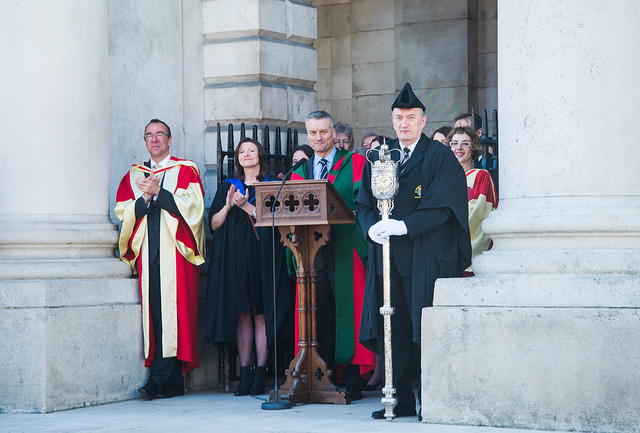As recently as 20 years ago, a degree would have automatically qualified you to work in your selected field. In addition to providing you with the skills and education required, an undergraduate degree would have provided you with a certain trajectory. In other words, your degree was the starting point of your career and, ultimately, your life. The shiny piece of paper acted as the first rung on the ladder of your chosen life path. In recent years, however, a shift has been clearly seen in the correlation between study and career.
Millennials are notoriously innovative. We tend to believe in possibility and are extremely creative when it comes to employment. With the resources available to us today, it is becoming more and more frequent for people to create their desired career themselves. For example, there now exists a job as a full-time “YouTuber”, something that wasn’t even conceivable for our parents’ generation. A job like this, however, is not part of a trajectory. There is no degree in “YouTube studies”. Even a degree in media doesn’t fully cover the criteria of the job. What is at play in a position like this is transferable skills.
Transferable skills are the accomplishments and understandings you have developed through various life experiences that can be used in many other situations. Increasingly, the focus of “success” is changing to become more centred around the individual. What can make you stand out among the masses of wandering graduates is the ability to bring an essence of “you” into your work, a unique set of skills, opinions and experiences that only you can contribute. In other words, modern jobs are starting to require people who can solve problems in a unique way, think on their feet and ultimately adapt to any situation.
Although colleges want their degrees to teach students more diverse and transferable skills, some are still falling short of that goal
These skills are attained through personal experience and go far beyond what you could learn in a formal setting. Any modern degree attempts to provide you with these skills. Once you step back from the actual content of your course, you will see that you are employing methods of critical thinking, problem-solving and analysis everyday. In a broader sense, the college experience teaches you a plethora of things such as time management, diligence and dealing with different kinds of people. Nowadays, a degree ideally acts more as a badge of capability rather than just a qualification in a specified field. This is what employers are increasingly looking for. This is quite an ask, however, for universities that traditionally saw providing degrees and pure knowledge as the most important part of their role. And while having a qualification shows that you can develop the skills to attain a piece of paper, and although colleges want their degrees to teach students more diverse and transferable skills, some are still falling short of that goal.
Being aware of your transferable skills helps you to bring more of your identity to any task. According to a study carried out by researchers Geoffrey Hinchliffe and Adrienne Jolly at the University of East Anglia in 2011, there is “a four-stranded concept of identity that comprises value, intellect, social engagement and performance”. These roughly translate to: value (what you can bring to the role?), intellect (how academically prepared are you to take on the responsibility?), social engagement (how involved are you already, why are you doing this, and what potential links can you bring with you?) and performance (to what extent can you maintain progress, continue to improve and enhance and deliver what is required?).
It is imperative as a liberal college that we move away from the rigidity of educational conventions and embrace the ever-changing face of “education”
With the labour market rapidly changing and automation replacing blue-collar jobs, the “stable” career path that our parents’ generation enjoyed has largely ceased to exist. This calls for some innovative reforms in our education system. These reforms could include greater investment in non-academic courses like apprenticeships, as well as adapting college courses to give graduates practical skills that would make them more employable.
Indeed, through the Trinity Education Project, Trinity is attempting to modernise and change the way it approaches its degree programmes. University College Dublin (UCD) has also announced reforms to its popular bachelor of arts degree to give students a greater chance of securing employment upon graduation. The College has decided that a Trinity graduate would be someone who could “think independently, act wisely, communicate effectively and develop continuously”. This statement is important as it captures the “working title” of the term “graduate”. It is imperative as a liberal college that we move away from the rigidity of educational conventions and embrace the ever-changing face of “education”. In a world so unpredictable, we need to do the best we can to prepare our students to thrive, both as individuals and in society.







